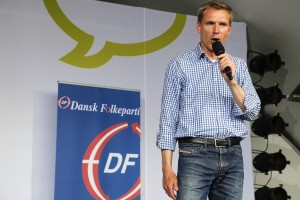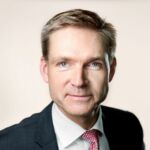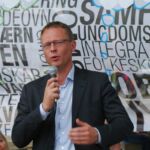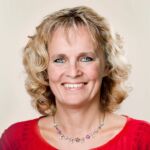Politics
Publicly-backed, privately unsure: are DF ready to govern?
This article is more than 10 years old.
Almost a week after the blue bloc’s election victory, Denmark’s PM in waiting, Lars Løkke Rasmussen, still doesn’t have the keys to the office.

Is the party with the somewhat chequered past now ready to govern? (Photo: News Øresund – Johan Wessman © News Øresund)
A poll published by Berlingske on Monday showed that six out of ten Danes want Dansk Folkeparti to be part of the new blue government following its surprise success in last week’s general election.
The right-wing party got more votes and mandates than Venstre, the party of Lars Løkke Rasmussen, the prime minister in waiting, who is currently trying to form a government.
The participants in the poll, however, did say DF would need to loosen up on some of the promises they made during the election about what they want from a new government.
Pressure increasing
Throughout the election campaign, DF’s leader Kristian Thulesen Dahl said he wasn’t interested in being part of the government, but after becoming the biggest blue party, the pressure is increasing.
While he has stated it is “unlikely that we will be part of the government” and that he wants a Venstre “minority government”, he has also said DF is prepared to compromise.
For the two parties to form a government, they will need to resolve conflicting policies on public sector spending, immigration and the EU.
“I can always make the decision to leave, if we don’t get everything through that we want,” he said.
“But I’m not sure that is the smartest decision. If you get 90 percent of what you want, it might be a good idea to stay. It is that balance we have to consider: would we then really get more out of leaving and having to defend our views for the next three to four years.”
Nothing certain yet
At the time of going to press on Wednesday, Rasmussen had not made any confirmations about the make-up of the new government. It has been reported that it might be a minority government made up of Venstre MPs alone, or a one that includes DF.
It is Rasmussen’s right to form a government because he has been authorised to so do by the other blue party leaders: Konservative, Liberal Alliance and DF.
By Wednesday, he had already paid two visits to the queen and is clearly undecided about DF’s role.
During the 1988 election, it took four visits before the then prime minister, Poul Schlüter, was able to reach an agreement.
DF’s potential ministers
Ekstra Bladet’s political commentator, Hans Engell, has been brave enough to assess which DF’ers might be capable of holding down ministerial positions.
Finance minister – DF’s leader Kristian Thulesen Dahl is an “obvious pick”. It would be a blow for Ventre is they have to give up this post, but it might be the “price they have to pay”.

Justice minister – Peter Skaarup has for years been “bragging” how none of the justice ministers have been as educated as him. Now he might get the chance to “prove himself”.

Social minister – DF vice chairman would be “perfect” for this position due to his public profile.

Housing minister – DF has participated in many big decisions regarding the housing market, and DF’s “young man”, Martin Henriksen, is “a good bet”.
Transport minister – Carl Christian Ebbesen, the first ever DF deputy mayor in Copenhagen who “needs to be included”, could be a candidate.
Environment minister – Alex Ahrendtsen, DF’s cultural spokesperson at the moment, is a “very capable speaker” and could end up in charge of the Environment Minstry.
Equality, church and Nordic co-operation minister – Karin Nødgaard is one of the “stronger female characters” in DF and should be able to achieve many DF goals in this post.














































